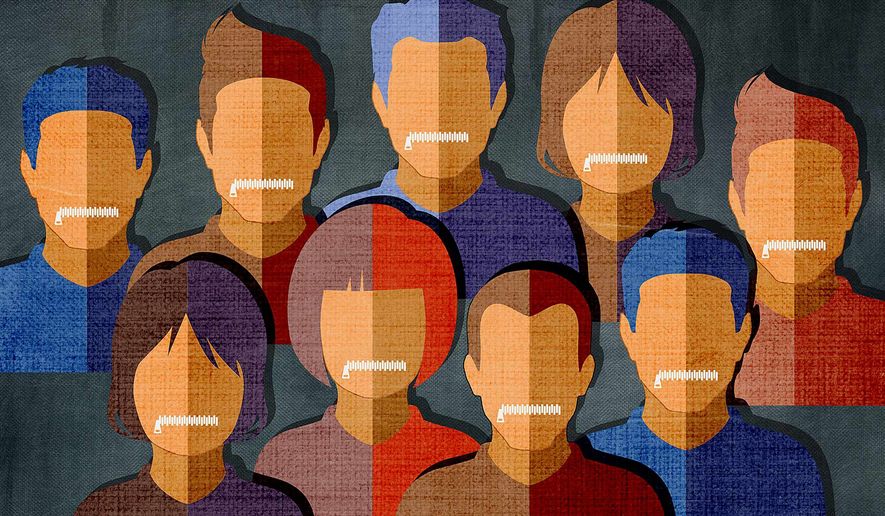OPINION:
Every four years like clockwork, the two major presidential nominees present their competing visions for the future of the country. This year, however, those visions are so starkly different as to be nearly irreconcilable. They may, in fact, indicate a breach far deeper and more searing than previously thought.
During their party conventions last month, Republican nominee Donald Trump and Democratic nominee Hillary Clinton presented opposing views of the current state of the nation and the different directions they’d take it if elected.
Mrs. Clinton argued that while we have some serious issues, things aren’t dire. In fact, she indicated that we are well on our way to the progressive utopia, but we need to ramp up President Obama’s policies to get there. (Of course she has to make that argument since she must defend the last eight years of Obama progressivism, but she also believes it.)
One of Mrs. Clinton’s biggest challenges is the damaged reality inflicted by the policies she has pledged to continue. The economy grew a paltry 1.2 percent in the second quarter and an even weaker 0.8 percent in the first quarter. The Obama-Clinton economic policies have failed, and the American people know it.
Mr. Trump confronted this miserable reality head-on, describing a nation in decline, crippled by economic weakness and uncertainty and escalating national security threats — because of the very policies Mrs. Clinton embraces. He went on to say the decline isn’t irreversible, but that time was short and new, strong leadership was required to turn it around.
His speech was less Reaganesque and more Nixonesque, in that he spoke to the current great silent majority with a simple message of law and order, economic populism, strong national defense and defeating the corrupt, rigged system.
His message was also targeted at expanding the party by speaking to those who have felt unheard by the Republican Party in recent times: the working and middle classes, blacks, Latinos, women. He told them that he was a different kind of candidate who would not be bound by party orthodoxy but by his pledge to disrupt the existing order in a way that would make the country work for them once again.
Based on recent polling, the American people support Mr. Trump’s view. Over 70 percent believe the country is on the wrong track, which advantages Mr. Trump as the authentic change agent in the race.
The Democrats know this, which is why they continue to try to portray their nominee as something she most definitely is not: a “changemaker,” in her husband’s words. It is nearly impossible to hold that mantle when her party has been in power for the past eight years.
Mrs. Clinton faces two other staggering challenges. First, her honesty and trustworthy numbers, which have never been positive, are at record lows. Nearly 70 percent of the American people find her untrustworthy, and after more than three decades on the national scene and an ongoing pattern of lying, she isn’t likely to reverse that impression.
But perhaps most damaging is that Mrs. Clinton is a charter member of the global elite and status quo at a time when regular folks are rejecting those things and sweeping their representatives out of power. Given the widespread anger, betrayal, anxiety and disgust at the bipartisan ruling class, Mrs. Clinton is perhaps the worst possible candidate to have been nominated.
On the Republican side, witness Senate Majority Leader Mitch McConnell and House Speaker Paul Ryan, who tried to put good faces on their convention appearances but knew they represent the hated Washington establishment.
And on the far left, witness Bernie Sanders and his supporters, whom he sold out to endorse Mrs. Clinton and try to forge some faux party “unity.” Many of those supporters are now vehemently anti-Hillary and will move forward with the leftist revolution with or without him. They, like everyone else, know that the rigged system gave her a glide path to the nomination.
This is why, despite whatever the current polling shows, the biggest winners of the campaign so far are, first, Donald Trump, who has pulled off the most astonishing political achievement in recent American history and who, despite having never done this before, having a skeletal campaign and relatively little money, may very well pull the whole thing off; and, second, the great silent majority, which now believes it truly has a voice and the ability to effect the course of the country.
The Republican Party is now the party of action, symbolized by its frenetic, unconventional nominee, and the Democratic Party is the passive one, embodied by its tired champion of the rejected status quo. In a change election, the choice could not be clearer.
• Monica Crowley is editor of online opinion at The Washington Times.




Please read our comment policy before commenting.